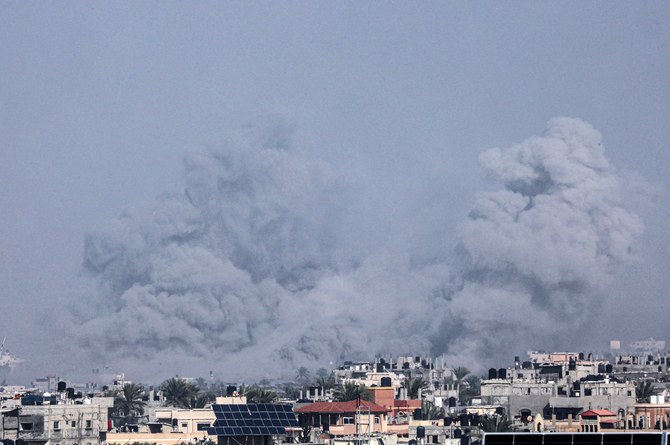Eyad Abu Shakra
Is it in our interest to know the truth about what is happening in our region, or are we too innocent to handle the bitterness? My personal feeling, and I hope I am wrong, is that we are too innocent and helpless to deal with the challenges that 2024 will bring, especially after the past few months have exposed the intentions and approaches of many.
The Near East region is changing before our eyes, geographically and demographically, while we are expected to be distracted by visits and regional tours, and to believe the diplomatic statements that Washington and some Western capitals have been regurgitating incessantly. Meanwhile, some of the misled and “misleaders” in our Arab world and its surroundings are comforted by hollow threats and empty rhetorical escalation.
Many were concerned with listening to what Hassan Nasrallah, the secretary-general of Lebanese Hezbollah, would say after Israel’s assassination of the prominent Hamas leader Saleh Al-Arouri and members of his entourage in the Dahieh southern suburbs of Beirut, a Hezbollah stronghold. But Nasrallah did not say anything new. Moreover, Hezbollah is, in the first place, an integral part of Iran’s strategy. Iran, whose Revolutionary Guard leaders have long and repeatedly threatened that “the annihilation of Israel” was a few minutes away, is still taking its time to achieve this “accomplishment” it promises, despite the horrific humanitarian conditions that the Israeli machine has left in the Gaza Strip over the past three months, which have claimed the lives of tens of thousands of innocent civilians.
As usual, Tehran has delegated the task of skirmishing and voicing positions to its Arabic-speaking proxies. It has fought and will continue to fight to enhance its regional influence – termed “resistance” – using the bodies of others, and building on the ruins of their nations and societies. Of course, Tehran expects a reward in return. It expects to be, as it has been for decades, included in the settlements and solutions that will be imposed on the remnants of the Near East after the West has handed Iran all of its entities, one after another, on a silver platter.
In Iraq, Tehran is waging a local “proxy war” through its militias under the pretext of avenging Gaza. Meanwhile, Washington does not seem troubled, and neither does Israel … the Iraqi state, Iraqi identity, and Iraqi sovereignty have all become things of the past. In Syria, the “red lines” offered by former US President Barack Obama not only saved the regime, but also buttressed Iranian hegemony over the capital of Syria and its “middle belt” from the Iraqi border in the east to what was once the Republic of Lebanon in the west. Now, Syrian territory has been divided into spheres of influence, drug factories, arms smuggling routes, and exporters of strife and unrest to neighboring countries.
In Lebanon, where “decisions of war and peace” are made by Iran that has financial and security hegemony through Hezbollah, the country’s chemistry has changed, and its situation has changed. This could not have been achieved without the “resistance” – that is, Iran’s plan for regional dominance. Under the guise of this “resistance,” Hezbollah retains its arms, unlike all the other Lebanese parties and forces. With these arms, it skirmishes, maneuvers, and extorts.
Now, after having endorsed the demarcation of Lebanon’s maritime borders with Israel, it awaits the arrival of “demarcation engineer” Amos Hochstein, the US special envoy and coordinator for international energy affairs, to negotiate the next step and strike a deal on the land borders. In his latest speech, Nasrallah did not rule out a de-escalation “if Israel stops its operations in Gaza.” In tandem with the rhetorical escalation, the exchange of rocket and artillery fire continues across the border, within the limits of the so-called “rules of engagement,” bearing in mind that most of the targeted Israeli sites have been evacuated for a while now.
Based on the above, Yemen’s Houthis are playing a new role in Iran’s “war of agitation” in the Red Sea and near the Bab Al-Mandeb Strait. This new element has increased the significance of international intervention to protect maritime trade. It also increases the need for Iranian “services” that will help Tehran get a share once the region is split, especially after it has been affirmed that Tehran has no intention of “destroying Israel.” On the contrary, Tehran’s threats over the years have strengthened Israel’s expansionist right-wing, and US political and military support for Israel.
A few days ago, pro-Israel electronic activists attacked me on X, accusing me of being an idiot for discussing the “intersection” of interests between Tel Aviv and Tehran. But I am convinced that actions always speak louder than words. The Biden administration is fully aware that Iran has no intention of attacking Israel. It opposed expanding the war to displace the people of Gaza into a regional conflict because, firstly, it agrees with Israel on the need to liquidate the Palestinian question, and second, it wants to maintain Iran’s regional role in the Middle East. Those who are still in doubt should consider the conditions of areas under Tehran’s control in the Arab Levant, and remember Obama’s words: “The Iranians are not suicidal.”
Arab News







